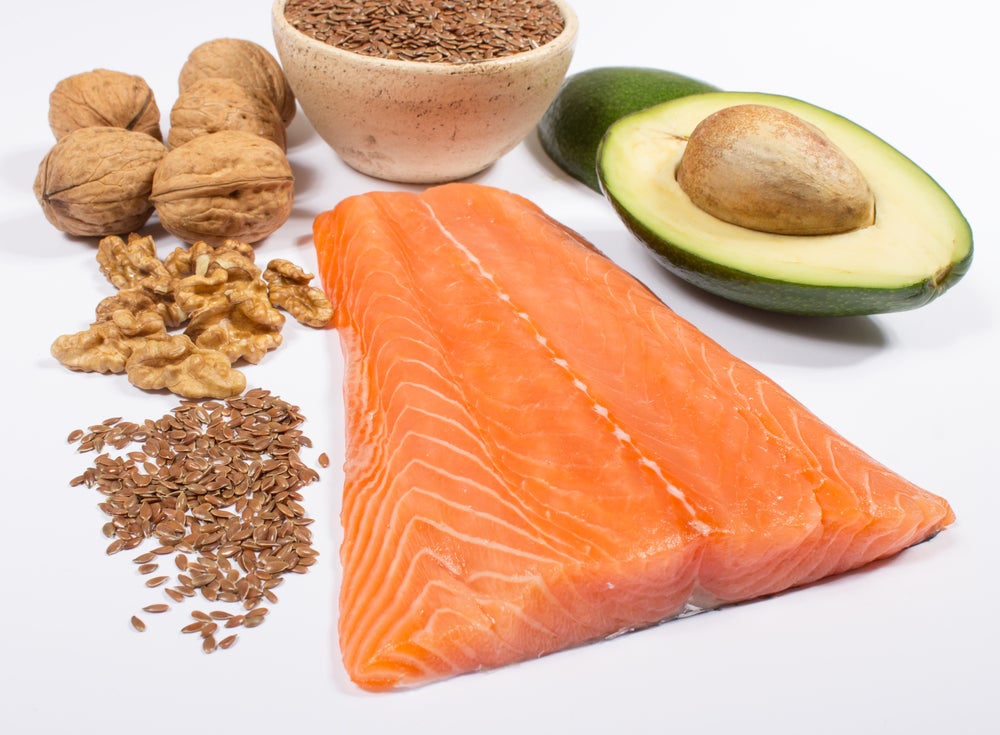A Nutritional Strategy to Help Your Injury

Good sources of omega 3 fatty acids. Photo: Shutterstock.com
The good news is that nutritional strategies can help with healing.
Mid-season injuries are no fun! But by understanding how the body responds to injury, you can start the healing process through nutrition immediately. When you get injured, your body responds with inflammation—its natural attempt to restore it back to normal function. While some inflammation (like sore muscles or swelling around a cut) is normal, chronic inflammation can lead to tissue damage and scarring. The good news is that nutritional strategies can help with healing.
First, don’t assume that you need to decrease calories to avoid weight gain. Resting metabolism actually increases following an injury because the body is working harder to repair damaged tissue. The greater extent the injury, the more calories the body needs. You may not need as many as when you were intensely training, but you will still need more than your typical “resting” needs. The kind of calories we consume becomes more important.
RELATED: 5 Nutrition Must Do’s For Triathletes
Good fats. Primarily, foods which contain omega-3 fatty acids can reduce inflammation, such as flax seeds, walnuts, salmon, sardines, soybeans, halibut, scallops, shrimp, tofu, and tuna.
Proteins are made up of amino acids and are necessary for wound healing and muscle building. Aim for 1.5–2g per kilogram of body weight per day following an injury. Find quality protein by consuming low-fat dairy products, whey protein, lean meats, and seafood. Some amino acids can be more powerful than others when it comes to healing—arginine, glutamine, and HMB.
Vitamins play a vital role in stimulating the immune system during inflammation. Key vitamins include Vitamin A (10,000IU daily for 1–2 weeks) which promotes healing, and vitamin C (1–2g per day for 1–3 weeks), which stimulates tissue healing and blood vessel formation. Magnesium and zinc help increase bone strength and muscle regeneration. Turkey, beans, peanuts, bananas, avocados, cashews and whole grains are all great sources for these vitamins and minerals.
Christina Strudwick, MS, CSSD, RD, LD, is a registered sports dietitian in Dallas.
RELATED: 5 Nutrition Changes To Boost Immunity And Reduce Injury